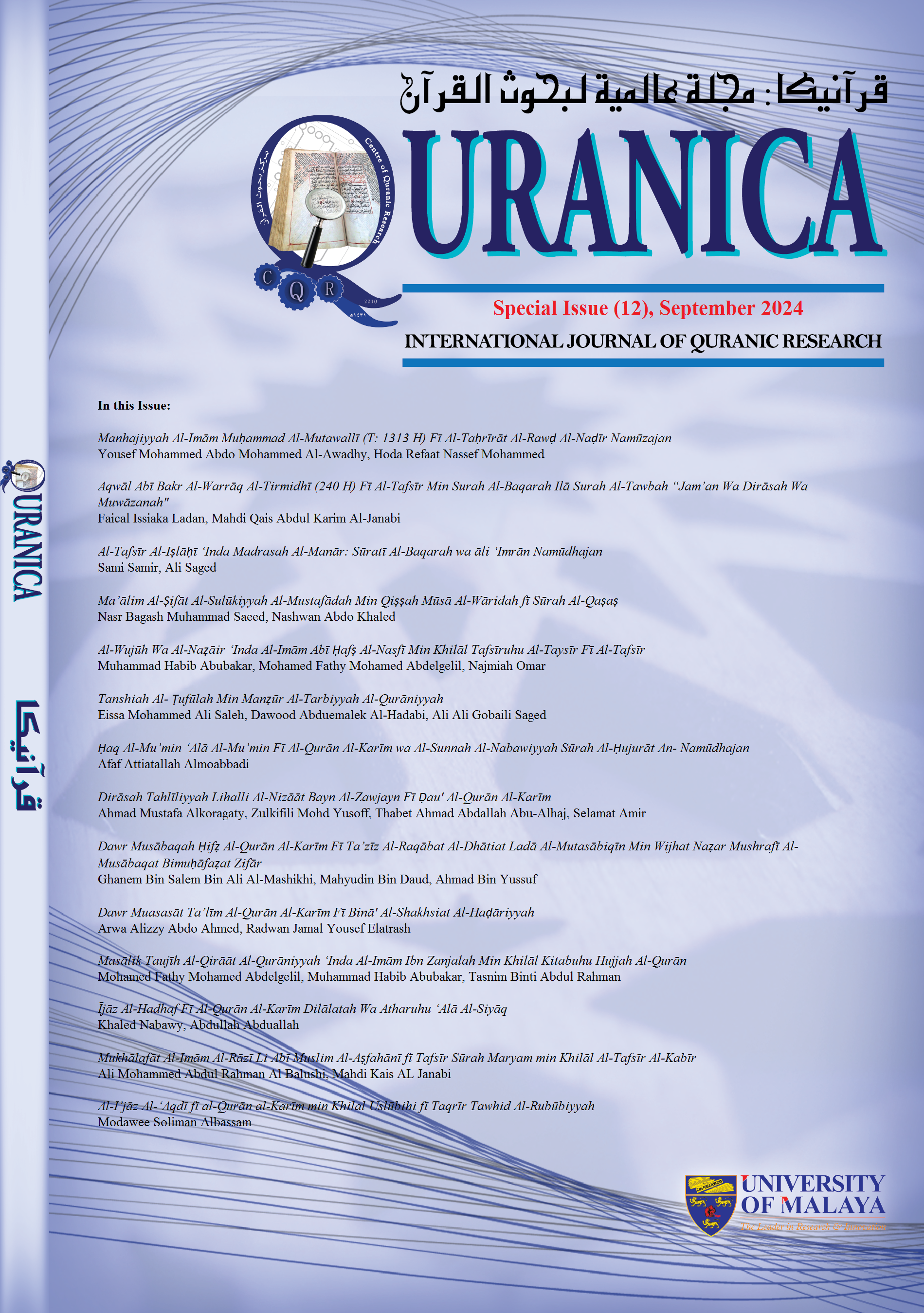Tanshiah Al- Ṭufūlah Min Manẓūr Al-Tarbiyyah Al-Qurāniyyah
DOI:
https://doi.org/10.22452/quranica.vol16no2.12Keywords:
Childhood, The Quranic Education. TheoryAbstract
The primary aim of this research paper is to explore the formation of childhood from the perspective of Quranic education and to highlight the distinctiveness of Islamic jurisprudence in this regard compared to other theories and philosophies. The paper adopts an inductive and analytical methodology to achieve its objective. It is structured into two main sections, each addressing multiple aspects. The first section elucidates the general rights of children in Islam, emphasizing pre-birth rights such as the importance of choosing a righteous mother with suitable characteristics to be a mother to children. It also discusses post-birth rights, including the right to protection and care, ensuring the preservation of all psychological and moral rights, proper naming, upbringing with good morals, values, and justice, and fulfilling all material rights such as the right to breastfeeding, 'aqiqah (the ritual of sacrificing an animal on the occasion of a child's birth), financial support, and safeguarding their property and possessions. The second section focuses on the prophetic model in dealing with childhood, highlighting the distinctive approach of the Prophet Muhammad (peace be upon him) in his compassionate, just, and gentle treatment of children. It emphasizes his emphasis on instilling noble morals and values, ensuring their rights to education and upbringing in life skills, and promoting the fulfilment of the human purpose of worshipping Allah and contributing positively to society.
Downloads
Downloads
Published
Issue
Section
License
Disclaimer
QURANICA makes every effort to ensure the accuracy of all its contents. However, opinions, discussions, views and recommendations are expressed in this journal do not necessarily reflect the official policy of QURANICA or views of its editors or publishers. Therefore, QURANICA and its publishers will not be liable for any controversy may be arisen. The journal reserves the right, at its sole discretion, to change its terms and conditions of publications.
Copyright
It is a condition of publication that manuscript submitted to the journal have not been published, accepted for publication, nor simultaneously submitted for publication elsewhere. By submitting a manuscript, the author(s) agrees that copyright for the article is transferred to the publisher, if and when the manuscript is accepted for publication.






